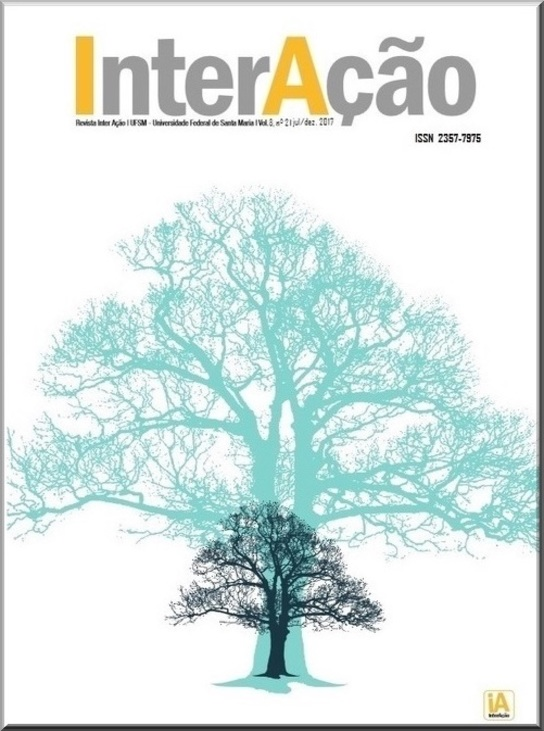O Council on Foreign Relations (CFR) e a agenda do establishment norte-americano de política externa no pós-Guerra Fria
DOI:
https://doi.org/10.5902/2357797531571Parole chiave:
Relações Internacionais, Política Internacional, Política Externa Norte-Americana.Abstract
O presente artigo buscará oferecer um estudo sobre o Council on Foreign Relations (CFR), think tank norte-americano especializado em política internacional criado em 1921, e a construção do pensamento do establishment americano de política externa que se dá no âmbito desse think tank durante o pós-Guerra Fria (1991 – 2017), especialmente através da Foreign Affairs, publicação editada pela entidade aqui abordada. Alguns dos principais nomes estudados, como Samuel Huntington, Zbigniew Brzezinski e Francis Fukuyama, mantiveram estreitas relações com think tanks durante suas carreiras acadêmicas e governamentais, notadamente com o CFR, onde publicaram boa parte de suas pesquisas. O artigo buscará traçar, portanto, os esforços desenvolvidos por esses e outros autores no âmbito do CFR visando à manutenção de uma política externa expansionista e da ordem mundial talhada sob a liderança e os valores dos Estados Unidos desde o fim da Guerra Fria.
Downloads
Riferimenti bibliografici
ABELSON, D. A Capitol Idea: think tanks and U.S. foreign policy. Toronto: McGill-Queen’s University Press, 2006.
BODMAN, S; WOLFENSOHN, J.; SWEIG, J. (Orgs.). Global Brazil and U.S.-Brazil Relations. Independent Task Force Report No. 66. Washington, DC: Council on Foreign Relations, 2011.
BOOT, M. “The New American Way of War”. In: Foreign Affairs, v. 82, n. 4, 2003.
BROOKS, S. G.; IKENBERRY, G. J.; WOHLFORTH, W. C. “Lean Forward: in defense of American engagement”. In: Foreign Affairs, v. 92, n. 1, 2013.
BRZEZINSKI, Z. “The Cold War and its Aftermath”. In: Foreign Affairs, v. 71, n. 4, 1992.
__________. “Balancing the East, Upgrading the West”. In: Foreign Affairs, v. 91, n. 1, 2012.
CFR. Council on Foreign Relations Annual Report 2016. Washington, DC: Council on Foreign Relations, 2016.
COHEN, E. “A Revolution in Warfare”. In: Foreign Affairs, v. 75, n. 2, 1996.
HALLIDAY, F. Repensando as Relações Internacionais. Porto Alegre: UFRGS/NERINT, 1999.
HAASS, R. The Reluctant Sheriff: The United States after the Cold War. Washington, DC: Council on Foreign Relations, 1998.
__________. “World Order 2.0: the case for sovereign obligation”. In: Foreign Affairs, v. 96, n. 1, 2017a.
__________. “Where to Go From Here? Rebooting American Foreign Policy”. In: Foreign Affairs, v. 96, n. 4, 2017b.
HUNTINGTON, S. “The Clash of Civilizations”. In: Foreign Affairs, v. 72, n. 3, 1993.
__________. “The Lonely Superpower”. In: Foreign Affairs, v. 78, n. 2, 1999.
KEOHANE, R. O.; NYE, J. S. “Power and Interdependence in the Information Age”. In: Foreign Affairs, v. 77, n. 5, 1998.
KREPINEVICH, A. F. “How to Deter China”. In: Foreign Affairs, v. 94, n. 2, 2015.
MEARSHEIMER, J. “The Future of the American Pacifier”. In: Foreign Affairs, September/October, 2001.
__________. “Why the Ukraine Crisis if the West’s Fault: the liberal delusions that provoked Putin”. In: Foreign Affairs, v. 93, n. 5, 2014.
MEARSHEIMER, J.; WALT, S. “The Case for Offshore Balancing: a superior U.S. Grand Strategy”. In: Foreign Affairs, v. 95, n. 4, 2016.
NYE, J. “What New World Order?” In: Foreign Affairs, v. 71, n. 2, 1992.
PARMAR, I. Think Tanks and Power in Foreign Policy: a comparative study of the role and influence of the Council on Foreign Relations and the Royal Institute of International Affairs, 1939-1945. New York: Palgrave, 2004.
PERRY, W. “Preparing for the Next Attack”. In: Foreign Affairs, v. 80, n. 6, 2001.
RICE, C. “Promoting the National Interest”. In: Foreign Affairs, v. 79, n. 1, 2000.
RUMSFELD, D. H. “Transforming the Military”. In: Foreign Affairs, v. 81, n. 3, 2002.
SCHULZINGER, R. The Wise Men of Foreign Affairs: history of the Council on Foreign Relations. New York: Columbia University Press, 1984.
STRATFOR. “Why Civilizations Really Clash”. In: Stratfor Worldview. Jan 10. 2016. Disponível em: https://worldview.stratfor.com/article/why-civilizations-really-clash. Acesso em: 29 de julho de 2017.
SVARTMAN, E. “Os think tanks dos EUA e as visões sobre a atuação internacional do Brasil”. In: Relaciones Internacionales (La Plata), v. 25, n. 50, 2016.
TEIXEIRA, T. Os think tanks e sua influência na política externa dos EUA. Rio de Janeiro: Revan/PPGRI, 2007.
TODD, E. Depois do Império. Rio de Janeiro: Record, 2003.
U.S. EMBASSY. History of the U.S.-UK Special Relationship. U.S. Embassy & Consulates in the United Kingdom. s/d. Disponível em: https://uk.usembassy.gov/our-relationship/policy-history/. Acesso em: 29 de julho de 2017.
ZAKARIA, F. “The Future of American Power: how America can survive the rise of the rest”. In: Foreign Affairs, v. 87, n. 3, 2008.







